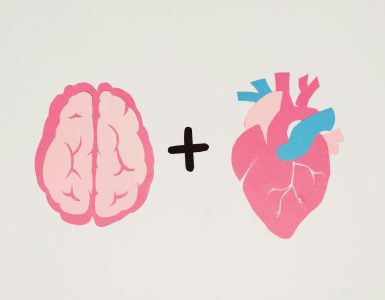Haben Sie sich jemals gefragt, warum Sie die Entscheidungen treffen, die Sie treffen? Warum Sie so fühlen, wie Sie fühlen, auch wenn es unlogisch erscheint? Menschliches Verhalten ist ein faszinierendes, oft verblüffendes Geflecht aus bewussten Entscheidungen und unbewussten Vorurteilen. Es ist ein Puzzle mit versteckten Federn und Hebeln, und die Psychologie ist der Schlüssel zum Verständnis, wie das alles funktioniert.
Die Macht des Priming-Effekts: Ihr Gehirn auf Autopilot
Stellen Sie sich Ihr Gehirn als einen beeinflussbaren Freund vor, der sich leicht durch subtile Hinweise beeinflussen lässt. Dabei handelt es sich um den "Priming-Effekt", bei dem die Reaktion auf einen Reiz die Reaktion auf einen anderen beeinflusst, oft unbewusst. Nehmen wir an, Sie gehen die Straße entlang und sehen ein Werbeplakat für ein Luxusauto. Später fühlen Sie sich vielleicht unerwartet zu einem teureren Artikel in einem Geschäft hingezogen, als Sie ursprünglich zu kaufen beabsichtigten. Sie haben nicht bewusst an die Autowerbung gedacht, aber sie hat Ihr Gehirn dazu veranlasst, Luxus mit Ihrem Kauf zu assoziieren.
Ein klassisches Experiment zeigt dies sehr schön. Den Teilnehmern wurde ein Worträtsel vorgelegt, wobei einige mit Wörtern, die mit Höflichkeit zu tun hatten (z. B. "Respekt", "höflich"), und andere mit neutralen Wörtern geprimt wurden. Später zeigte sich, dass die "Höflichkeits"-Gruppe deutlich eher bereit war, einem Forscher zu helfen, der "versehentlich" seinen Stift fallen ließ.
Kognitive Dissonanz: Wenn Überzeugungen kollidieren
Wir alle streben nach innerer Konsistenz - wir möchten, dass unsere Überzeugungen mit unseren Handlungen übereinstimmen. Wenn das nicht der Fall ist, erleben wir eine "kognitive Dissonanz", einen Zustand geistigen Unbehagens. Um dieses Unbehagen zu lindern, ändern wir oft unsere Überzeugungen, damit sie mit unseren Handlungen übereinstimmen (oder umgekehrt).
Denken Sie an einen Raucher, der weiß, dass Rauchen schädlich ist, aber trotzdem weiter raucht. Um die Dissonanz zu verringern, könnte er die Risiken herunterspielen ("Mein Onkel hat sein ganzes Leben lang geraucht und wurde 90 Jahre alt!") oder sein Verhalten rationalisieren ("Es hilft mir zu entspannen"). Die Dissonanz wird aufgelöst, aber nicht unbedingt auf eine gesunde Art und Weise.
Der Bystander-Effekt: Streuung der Verantwortung
Stellen Sie sich vor, Sie werden Zeuge, wie jemand auf der Straße belästigt wird. Sie denken vielleicht: "Sicherlich wird jemand anderes helfen." Das ist der Bystander-Effekt: Je mehr Menschen in einer Notsituation anwesend sind, desto geringer ist die Wahrscheinlichkeit, dass eine einzelne Person eingreift. Die Verantwortung wird auf die ganze Gruppe verteilt.
Der berüchtigte Mord an Kitty Genovese hat dieses Phänomen deutlich gemacht, auch wenn die Einzelheiten umstritten sind. Der entscheidende Punkt bleibt: Die Anwesenheit zahlreicher Zuschauer verhinderte ein Eingreifen und zeigt, wie unser sozialer Kontext unser Handeln beeinflusst.
Confirmation Bias: Sehen, was man sehen will
Wir neigen von Natur aus dazu, nach Informationen zu suchen, die unsere bestehenden Überzeugungen bestätigen, während wir Informationen, die ihnen widersprechen, ignorieren. Das ist der Bestätigungsfehler, der unsere Weltanschauung stark prägt. Wenn Sie zum Beispiel glauben, dass der Klimawandel ein Schwindel ist, lesen Sie vielleicht hauptsächlich Artikel, die diese Ansicht unterstützen, und ignorieren alle gegenteiligen Beweise.
Diese Voreingenommenheit ist nicht auf große ideologische Fragen beschränkt. Sie kann sich auf alltägliche Entscheidungen auswirken, von der Wahl eines Arbeitsplatzes bis zur Wahl eines Liebespartners. Wir bemerken die guten Eigenschaften, die unsere Wahl bestärken, während wir die Schwächen herunterspielen.
Der Halo-Effekt: Eine gute Sache führt zur nächsten (oder doch nicht?)
Haben Sie schon einmal eine attraktive Person kennengelernt und sofort angenommen, dass sie auch intelligent und freundlich ist? Das ist der Halo-Effekt: Ein positiver Eindruck in einem Bereich (z. B. das Aussehen) überträgt sich auf andere Bereiche und führt zu einer insgesamt positiven Bewertung. Umgekehrt kann ein negativer erster Eindruck auch zu einer verzerrten Wahrnehmung anderer Eigenschaften führen.
Dieser Effekt macht deutlich, wie wichtig der erste Eindruck ist und wie schnell wir auf der Grundlage begrenzter Informationen Verallgemeinerungen treffen. Er wirkt sich auf alles aus, von Einstellungsentscheidungen bis hin zu politischen Wahlen.
Der Framing-Effekt: Wie Worte unsere Entscheidungen prägen
Die Art und Weise, wie Informationen präsentiert werden, hat einen erheblichen Einfluss auf unsere Entscheidungen. Das ist der Framing-Effekt. Ein Programm, das mit einer Erfolgsquote von 90% beschrieben wird, klingt zum Beispiel attraktiver als eines mit einer Misserfolgsquote von 10%, obwohl sie im Wesentlichen gleich sind.
Marketingfachleute beherrschen diese Technik. Sie wählen sorgfältig Worte, um die Vorteile hervorzuheben und die Risiken herunterzuspielen, und schaffen so eine überzeugende Erzählung, die unsere Kaufentscheidungen beeinflusst.
Die Macht der sozialen Normen: Konformität und Gehorsam
Der Mensch ist von Natur aus ein soziales Lebewesen. Wir neigen dazu, uns den Normen und Verhaltensweisen unserer Gruppen anzupassen, selbst wenn dies mit unseren persönlichen Überzeugungen in Konflikt steht. Das Gehorsamkeitsexperiment von Stanley Milgram hat dies auf dramatische Weise gezeigt. Die Teilnehmer wurden angewiesen, einem Lernenden (einem Schauspieler) zunehmend schmerzhafte Elektroschocks zu verabreichen, wenn sie Fehler machten. Erstaunlich viele Teilnehmer gehorchten der Autoritätsperson, selbst wenn der Lernende vor Schmerz schrie.
Diese Forschung hat den starken Einfluss von Autorität und sozialem Druck auf unser Verhalten aufgezeigt, selbst wenn dies bedeutet, Schaden anzurichten. Die Implikationen sind für das Verständnis von Situationen wie Gruppendenken und unethischem Verhalten in Organisationen von Bedeutung.
Schlussfolgerung: Der sich ständig weiterentwickelnde menschliche Geist
Die Psychologie bietet einen faszinierenden Einblick in die oft verborgenen Mechanismen, die unsere Gedanken, Gefühle und Handlungen steuern. Diese verborgenen Muster sind zwar manchmal überraschend, helfen aber zu erklären, warum wir die Entscheidungen treffen, die wir treffen, oft ohne es überhaupt zu merken. Wenn wir diese Vorurteile und Auswirkungen verstehen, geht es nicht darum, uns zu reparieren, sondern darum, uns unserer eigenen mentalen Prozesse bewusster zu werden und fundiertere Entscheidungen in unserem Leben zu treffen.
Die Reise zum Verständnis des menschlichen Verhaltens ist ein ständiges Abenteuer, und je mehr wir lernen, desto mehr erkennen wir, wie komplex und faszinierend das menschliche Rätsel wirklich ist. Die geheime Soße von dir: Das Unerwartete im menschlichen Verhalten entschlüsseln

























Kommentar hinzufügen